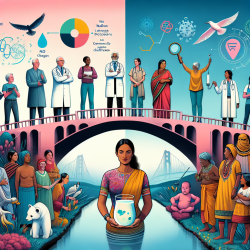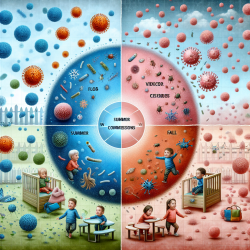Introduction
Adolescence is a critical period for health interventions, yet many adolescents in low- and middle-income countries (LMICs) like Ghana lack access to comprehensive health services. The Y-Check programme, as described in the research article "Reaching adolescents with health services: Systematic development of an adolescent health check-ups and wellbeing programme in Ghana (Y-Check, Ghana)," offers a promising approach to address these gaps.
Understanding the Y-Check Programme
The Y-Check initiative aims to provide routine health check-ups tailored to the needs of adolescents aged 10-19 years. The programme is designed to be implemented in both school and community settings, ensuring broad accessibility. It consists of two check-ups targeting younger and older adolescents, with content and delivery strategies co-created with local stakeholders, including adolescents and their parents.
Key Findings and Implementation Strategies
The research highlights several key components for successful implementation:
- Co-Production with Stakeholders: The programme's development involved participatory workshops and consensus-building with adolescents, parents, and health professionals, ensuring the intervention is contextually relevant and acceptable.
- Comprehensive Health Screening: The check-ups cover a range of health issues, including mental health, sexual health, nutrition, and common adolescent health problems like anemia and visual impairments.
- Referral System: A robust referral system is in place for adolescents requiring further investigation or treatment, ensuring continuity of care.
Opportunities for Practitioners
For practitioners, the Y-Check programme offers valuable insights into developing adolescent health interventions. By adopting a data-driven approach and engaging stakeholders in the design process, practitioners can create tailored health services that address the unique needs of adolescents. Additionally, the programme's emphasis on routine check-ups provides a model for integrating preventive health services into existing health systems.
Encouraging Further Research
While the Y-Check programme shows promise, further research is needed to evaluate its long-term impact on adolescent health outcomes. Practitioners are encouraged to contribute to this body of research by piloting similar interventions in their contexts and sharing findings to build a comprehensive evidence base for adolescent health services.
Conclusion
The Y-Check programme represents a significant step forward in adolescent health care in Ghana. By focusing on routine health check-ups and engaging stakeholders in the development process, the programme has the potential to improve health outcomes for adolescents. Practitioners can draw on these insights to enhance their own practice and contribute to the global effort to support adolescent health.
To read the original research paper, please follow this link: Reaching adolescents with health services: Systematic development of an adolescent health check-ups and wellbeing programme in Ghana (Y-Check, Ghana).










